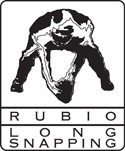Chris Sailer Kicking 2013 CA Nike Spring Camp Recap
Camp Champion
Jordan Dascalo (2013 CA): Jordan was perhaps the most impressive all around specialist on the day. He was near the top of every field goal, kickoff and punt competition. He hit a 57 yard field goal off the ground, hit a 73 yard, 3.90 kickoff, and a 50 yard, 5.18 punt. Jordan is a special athlete who currently holds offers from Alabama A&M and Arkansas Pine Bluff.Field Goal Champion
Levi Weiss (2013 OR): Levi was a newcomer to Chris Sailer Kicking, but fit right in. Levi just started kicking few months ago and stepped up big on this day. A natural kicker that has a real shot of taking his game to the college level.
Kickoff Champion
Kenny Smart (2014 CA): Kenny was the most impressive junior all day long. Both his field goals and kickoffs were impressive. He won the kickoff competition by hitting a 76 yard, 3.95 kickoff. Coming off an impressive Vegas showing, Kenny is quickly becoming a well known college prospect.
Punting Champion
Manuel Meza (JC CA): Manuel had another huge day. The recent 11th Annual National Kicking Event Punt Champion was one of the very best all day long. He is consistent, has a huge leg, and punts very well under pressure. Look for Manuel to be perhaps the top punter in Junior College football next year.
Best of the Best
2013 – Ruben Guzman (JC CA): The “TOP 12” Punter won 2 of the 4 major punt competitions. Recently offered by Wyoming, Ruben proved exactly why once again. No one has punted more consistently than Ruben over the past year. Look for Ruben to be a top college punter for years to come.
2014 – Tristan Vizcaino (CA): Tristan is an incredible all around prospect. His field goals are clean off the ground, kickoffs are close to college ready, and he also shows excellent punting potential. A great athlete that will have a big spring and summer.
2015 – Ben Kreitenberg (CA): Ben continues to be the top player in his class. He has a big leg, already kicks with consistency off the ground, and does extremely well under pressure. Although his competition is creeping up on him, Ben still stands alone at the top.
Other Standouts
2013: Bret Miller, Joe Pierik
2014: Casey Sublette, Jackson Koonce, Jake Ambrose, Lucas Alfonso, Tim Strader, Tyler Duncan, Jonathan Weilbacher
2015: Adam Walter, Brandon Hong, Cameron Coe, Cristian Bianchi, Ethan Erickson, Gage Wilson
Chris Sailer Kicking will next travel to Dallas, TX (March 3), Chicago, IL (March 17), Charlotte, NC (April 13), Atlanta, GA (April 14) all culminating with the 11th Annual National Kicking Spring Event in Las Vegas May 4-5 in Las Vegas, NV.
Visit www.ChrisSailerKicking.com for more results, player rankings, and future camp listings.
To view this story on Scout.com – CLICK HERE
(102)
















